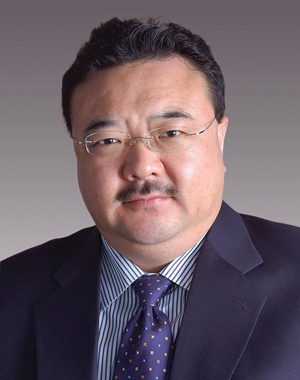|
IEEE/ICME
CME 2011 Conference
Plenary
Talk 2
Active medical devices: State-of-the-art and the challenges
Max Q.-H. Meng, Ph.D.
Professor
Department of Electronic Engineering
The Chinese University of Hong Kong
Shatin, Hong Kong
E-mail:max@ee.cuhk.edu.hk

Abstract:
In the past centuries, endoscope evolved from rigid to flexible, from cabled to
wireless, thanks to the development of new technologies and new materials. The
self-contained wireless capsule endoscope represents the state-of-the-art of
gastrointestinal endoscope by providing non-invasive, painless and effective
diagnosis of the diseases in the small intestine. Nevertheless, efforts to
develop the next generation endoscopes still continue to this date. One
anticipation is to embed the capsule with therapeutic tools and enable not only
diagnosis but also treatment of the GI diseases as well. Prior to the
accomplishment of this objective, controlled movement of the capsule should be
achieved first. In this talk, we focused on the actuation and localization
issues of the active capsule endoscope. After a survey on the related work, the
challenges were presented and the possible solutions were discussed.
Max Q.-H. Meng received his Ph.D. degree in Electrical and Computer Engineering from the University of Victoria, Canada, in 1992, following his Master's degree from Beijing Institute of Technology in 1988. He has been a Professor of Electronic Engineering at the Chinese University of Hong Kong since 2002, after working for 10 years in the Department of Electrical and Computer Engineering at the University of Alberta in Canada as the Director of the ART (Advanced Robotics and Teleoperation) Lab, holding the positions of Assistant Professor (1994), Associate Professor (1998), and Professor (2000), respectively. He is jointly appointed as an Overseas Outstanding Scholar Chair Professor of the Chinese Academy of Sciences and the Dean of the School of Control Science and Engineering at Shandong University in China. His research interests include robotics and active medical devices, tele-medicine and healthcare, bio-sensors and sensor networks, network enabled systems and services, and adaptive and intelligent systems. He has published more than
350 journal and conference papers and book chapters and led more than 30 funded research projects to completion as Principal Investigator. He has served as an editor of the IEEE/ASME Transactions on Mechatronics and an associate editor of the IEEE Transactions on Fuzzy Systems, and is currently a technical editor of Advanced Robotics, Journal of Advanced Computational Intelligence and Intelligent Informatics, and International Journal of Information Acquisition. He served as an Associate VP for Conferences of the IEEE Robotics and Automation Society (2004-2007), an AdCom member of the IEEE Neural Network Council/Society (2003-2006), and a member of the IEEE/ASME Transactions on Mechatronics Management Committee (2001-2006). He was the General Chair of IEEE CIRA 2001, IROS 2005, AIM 2008, and WCICA 2010 conferences. He is a recipient of the IEEE Third Millennium Medal award and is a Fellow of IEEE.
|